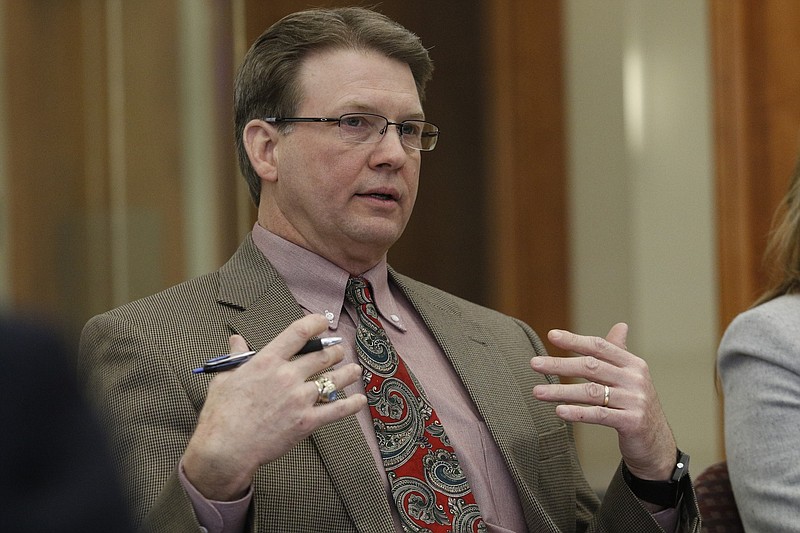Not surprisingly, every state agency, state-related agency and nonprofit has had its hands out this winter in the clamor for a piece of the nearly $750 million surplus the state of Tennessee collected in fiscal 2016.
Some agencies, after all, had to cut back on funding during the Great Recession. Others felt stuck in neutral.
Count Orange Grove Center as one of those which had to tighten its belt.
Now, though, the Chattanooga nonprofit, which serves people with intellectual disabilities, would like to have the state increase funding for the Department of Intellectual and Development Disabilities so it can, in turn, offer its 500 direct support staff members a $1 an hour raise.
Nonprofit direct support staff members across the state, those people who work most closely with clients with intellectual disabilities, have gone five years without a wage adjustment, according to Orange Grove Executive Director Kyle Hauth, and have had a wage increase of only 1.9 percent over 10 years.
"It's a public service that just happens to be delivered by a nonprofit," he said in a meeting with Times Free Press editors and reporters on the day when Wal-Mart announced it was moving all of its workers to a $10 minimum wage.
State-employed direct support professionals in Tennessee have had a 16 percent increase over that same decade.
The 500 direct support professionals, who work with 1,000 clients at Orange Grove, earn between the national minimum wage of $7.25 and $10 an hour. State-employed workers in the same job start at just shy of $11 an hour.
Hauth and directors of similar nonprofits around Tennessee want to see the state contribute another $21 million toward the raises. That money would generate $42 million in federal matching money.
Gov. Bill Haslam included in his fiscal 2017 budget $24 million to assist some 6,000 people with disabilities who are waiting for services, but he did not fund the Department of Intellectual and Developmental Disabilities' request for a small increase to help pay for the raises. State employees, meanwhile, have been budgeted to receive a 4 percent raise.
"Not just anyone can do this," James Massengale, a direct support professional at Orange Grove, said of the work which is done by 20,000 people across the state. Yet, he said, it's not a job "one enters into because of the pay."
For the clients, he said, "consistency is the name of the game." It's important because you "do for others what they can't do for themselves."
Employers like Orange Grove are caught in the middle. The Chattanooga nonprofit and agencies like it are forced to hire more people because the number of clients allowed to live in the same home has been reduced. And the agency has some space in its residential care units that it would like to fill to serve some of the 6,000 people on its waiting list.
But because state pay for the direct support professionals is so meager, it cannot keep enough workers to fill the positions it has. Indeed, since it's often more lucrative to flip burgers at a fast-food restaurant, turnover can be frequent.
"We hope and pray something can be done," Hauth said. "We are at a critical juncture."
If direct support professionals are unable to get a $1 an hour raise - a 10 percent increase for those making $10 an hour - we hope legislators find a way to give them at least a 4 percent raise that matches other state employees. The devotion, dedication and peace of mind they offer the families of disabled clients is worth that much and more.
